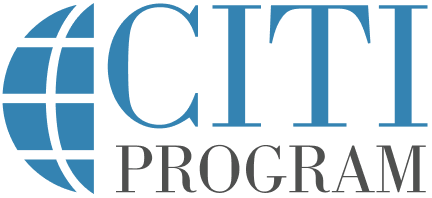Navigating the High Stakes of Research Misconduct
Research misconduct investigations are among the most sensitive and high-stakes processes an institution can undertake. They carry the potential to undermine public trust, derail scientific careers, and expose institutions to regulatory penalties, litigation, and reputational damage.
Even the most well-intentioned internal efforts can face skepticism, especially in cases involving prominent researchers or complex institutional hierarchies.
This is where external consultants can play a vital role. Brought in at the right time, they help institutions navigate complexity with objectivity, efficiency, and expertise. Their presence signals a commitment to fairness and transparency, which is crucial for reinforcing trustworthiness and long-term accountability. [1]
Why Institutions Turn to Consultants
Even well-intentioned internal investigations may fall short. A 2019 analysis by Grey et al. found that institutional reports often lack transparency, rigor, and thoroughness—particularly when investigating internal researchers. This reinforces the case for engaging experienced external consultants to strengthen both process integrity and public trust. [2]
This concern is echoed by Karen Christianson, Senior Vice President & Managing Director at HRP Consulting Group:
“Research misconduct investigations are often highly sensitive and can be complicated by internal dynamics and institutional politics. Even when acting in good faith, internal investigators may face skepticism or allegations of retaliation simply for fulfilling their roles in a complex, high-stakes process. Engaging impartial, experienced external consultants can help mitigate these challenges by bringing objectivity, credibility, and specialized expertise. Their involvement can enhance both internal and public trust in the investigation’s integrity and outcome.”
That trust—and the ability to act decisively in moments of uncertainty—is often why institutions turn to consultants in the first place. Consultants also help ensure compliance with updated federal standards, such as the 2024 PHS Final Rule, which introduced clearer timelines, enhanced confidentiality obligations, and reinforced fairness in investigative processes [3].
Key Benefits of Working with Consultants
Expertise You Can Rely On
Consultants often bring a broad range of experience across institutions, disciplines, and case types. Many have backgrounds in regulatory compliance, scientific research, legal counsel, and federal investigation standards. This cumulative expertise accelerates the process while improving accuracy.
Objectivity and Impartiality
Because external consultants are not embedded in the institutional ecosystem, they are less vulnerable to internal politics or unconscious bias. Their independence can bolster credibility with stakeholders—including funding agencies like NIH. [4]
Improved Efficiency
Investigations can be time-intensive. A consultant team can dedicate full-time resources to fact-finding, interviews, documentation, and reporting—tasks that can overwhelm even the best-prepared internal offices. This accelerates resolution and frees up institutional bandwidth. [1]
Capacity Building
Many consultants don’t just investigate—they educate. They can offer recommendations on program improvements, policy updates, or training modules for future internal investigations, leaving your institution stronger long after the case is closed.
Crisis Management Support
A research misconduct allegation often draws unwanted attention. Consultants can work alongside legal and communications teams to provide strategic messaging, ensure regulatory alignment, and field agency inquiries—all while maintaining compliance with confidentiality requirements.
Litigation Readiness
With lawsuits on the rise in the academic and scientific space, proper documentation is essential. Consultants experienced in litigation support can guide secure document storage, tag sensitive communications, and preserve investigative integrity for future legal review.
Important Considerations Before Engaging a Consultant
Hiring a consultant can be a powerful move—but it’s not without risks. Institutions must proactively ensure alignment, protection, and ethical integrity.
Confidentiality
Ensure that the consultant’s contract includes airtight confidentiality clauses. Leaks can derail investigations and expose the institution to legal or reputational harm. Only share data on a need-to-know basis and audit any external storage platforms in use.
Conflict of Interest
Verify that consultants—and their employees—have no financial, personal, or professional ties to involved parties. A robust Conflict of Interest (COI) disclosure and review process should be in place before engagement, and revisited if new facts emerge during the investigation. [1]
Data Security
Investigations may involve sensitive personal data, grant records, or unpublished findings. Consultants must demonstrate robust cybersecurity infrastructure, including encryption, secure cloud environments, and compliance with institutional or federal IT policies.
Cost-Benefit Analysis
Yes, external consultants can be expensive. But they’re often cheaper than the fallout of a mismanaged investigation—including loss of federal funding, legal settlements, and long-term damage to academic reputation. Institutions should also weigh the long-term value of capacity-building.
Best Practices for Engaging and Collaborating with Consultants
- Engage Early: Bringing in a consultant after the damage is like calling the fire department after the house has burned down. Consider pre-vetting firms and maintaining relationships ahead of time.
- Define Scope Clearly: Determine whether the consultant will provide investigation services, program review, training, or all of the above. Define deliverables and timelines.
- Maintain Internal Oversight: The consultant should enhance—not replace—the institution’s role in the process. Internal leadership should stay informed and ensure alignment with institutional policies and regulatory requirements.
- Build a Knowledge Transfer Loop: Consider post-investigation debriefs or reports that highlight internal gaps, compliance improvements, and areas for future training.
A Strategic Move, Not a Sign of Weakness
Engaging external consultants in research misconduct investigations is not an admission of failure—it can demonstrate institutional maturity and commitment to ethical standards.
Upholding responsible research practices—primarily through consultative safeguards—is more critical than ever. Armond et al. put it, “[Integrity] serves as a pillar to uphold society’s trust in science,” underscoring that reliability and rigor are foundational not just to knowledge production, but also to public confidence and accountability. [5]
In high-risk situations, where the stakes include funding, public perception, and careers, outside expertise can provide more than just technical assistance. It can build credibility, ensure fairness, and strengthen the entire research enterprise.
As outlined in the PHS policy on Research Misconduct, institutions are responsible for handling allegations thoroughly, competently, and without bias. [3] Consultants, when used wisely, are not just a resource, they’re a strategic asset in fulfilling that charge.
References
[1] Office of Research Integrity. 2025. Handling Misconduct. U.S. Department of Health and Human Services. Accessed June 12, 2025. https://ori.hhs.gov/handling-misconduct.
[2] Grey, Andrew, Mark Bolland, Greg Gamble, and Alison Avenell. “Quality of Reports of Investigations of Research Integrity by Academic Institutions.” Research Integrity and Peer Review 4 (2019): Article 3. https://doi.org/10.1186/s41073-019-0062-x.
[3] Federal Register. 2024. “Public Health Service Policies on Research Misconduct.” Federal Register 89 (180): 76,280–76,309. Published September 17, 2024. https://www.federalregister.gov/documents/2024/09/17/2024-20814/public-health-service-policies-on-research‑misconduct.
[4] Schrag, Matthew, Kevin Patrick, and Elisabeth Bik. 2025. “Academic Research Integrity Investigations Must Be Independent, Fair, and Timely.” Journal of Law, Medicine & Ethics, published online May 22, 2025. https://doi.org/10.1017/jme.2025.38.
[5] Armond, Anna Catharina V., Kelly D. Cobey, and David Moher. 2024. “Research Integrity Definitions and Challenges.” Journal of Clinical Epidemiology 171 (July): 111367. https://doi.org/10.1016/j.jclinepi.2024.111367.





